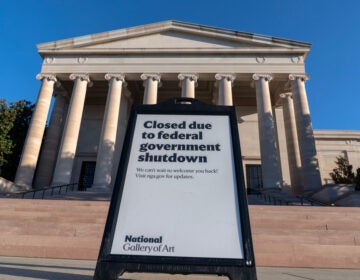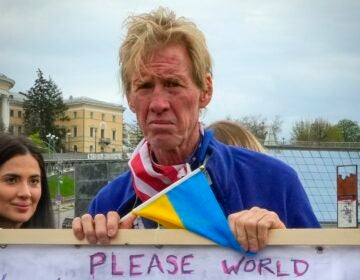Ex-Proud Boys leader Enrique Tarrio sentencing delayed in Jan. 6 case
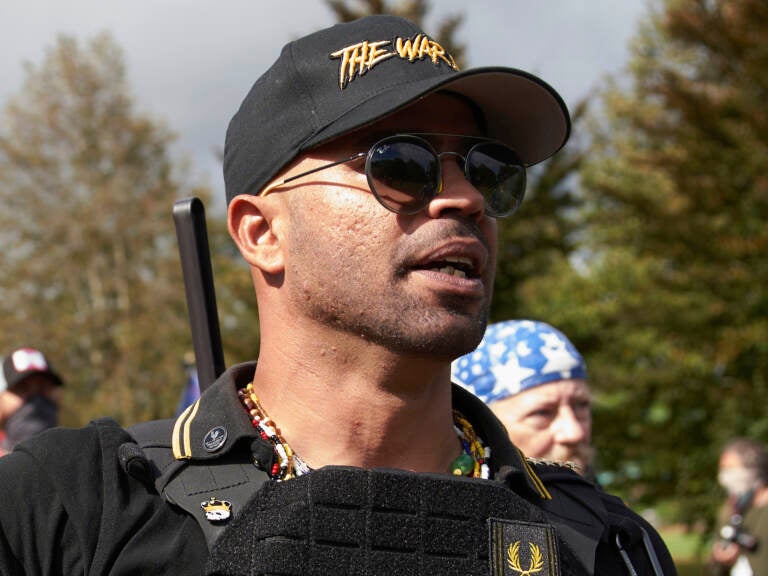
Proud Boys leader Enrique Tarrio speaks at a rally in Delta Park on Sept. 26, 2020, in Portland, Ore. (Allison Dinner/AP)
The sentencing hearing for Enrique Tarrio, the former national chairman of the Proud Boys convicted for seditious conspiracy for his role in the Jan. 6, 2021 attack on the U.S. Capitol, is postponed.
His hearing was set to begin at 10 a.m.
It’s unclear when the hearing will be rescheduled, according to Tarrio’s attorney, Nayib Hassan.
Tarrio could face the stiffest penalty doled out so far in the government’s massive prosecution of Capitol rioters.
Prosecutors want him sentenced to 33 years in prison for his role in conspiring with his lieutenants to stop the certification of the 2020 presidential election results in Congress and to keep former President Donald Trump in power.
Oath Keepers founder Stewart Rhodes, who was convicted of seditious conspiracy in a separate case in May, had received the longest sentence so far — 18 years.
But prosecutors sought more severe penalties for Tarrio and his codefendants, calling them the “foot soldiers of the right.”
Also originally set to be sentenced later Wednesday and later this week are Tarrio’s codefendants, fellow Proud Boys Ethan Nordean, Joseph Biggs, Zachary Rehl and Dominic Pezzola.
Tarrio, Nordean, Biggs, and Rehl were all convicted for seditious conspiracy and other crimes in May. Pezzola was acquitted on that charge, but found guilty of assaulting, resisting or impeding certain officers and robbery involving government property.
The DOJ sought 33 years for Tarrio and Biggs, a former military service member who worked for the conspiracy site InfoWars. They sought a separate 30-year sentence for Rehl, 27 years for Nordean and 20 years for Pezzola.
Among the other charges Tarrio, Nordean, Biggs and Rehl were sentenced for are obstructing an official proceeding, conspiracy to prevent an officer from discharging their duties, obstruction of law enforcement during a civil disorder and destruction of government property with value of over $1,000.
Pezzola is well known for taking a shield from a police officer on Jan. 6 and using it to bash in a window at the Capitol. Rioters used this broken window as a way to enter the building.
The hearings for Biggs and Rehl are scheduled for 10 a.m. and 2 p.m. respectively on Thursday and Pezzola will be sentenced on Friday at 10 a.m.
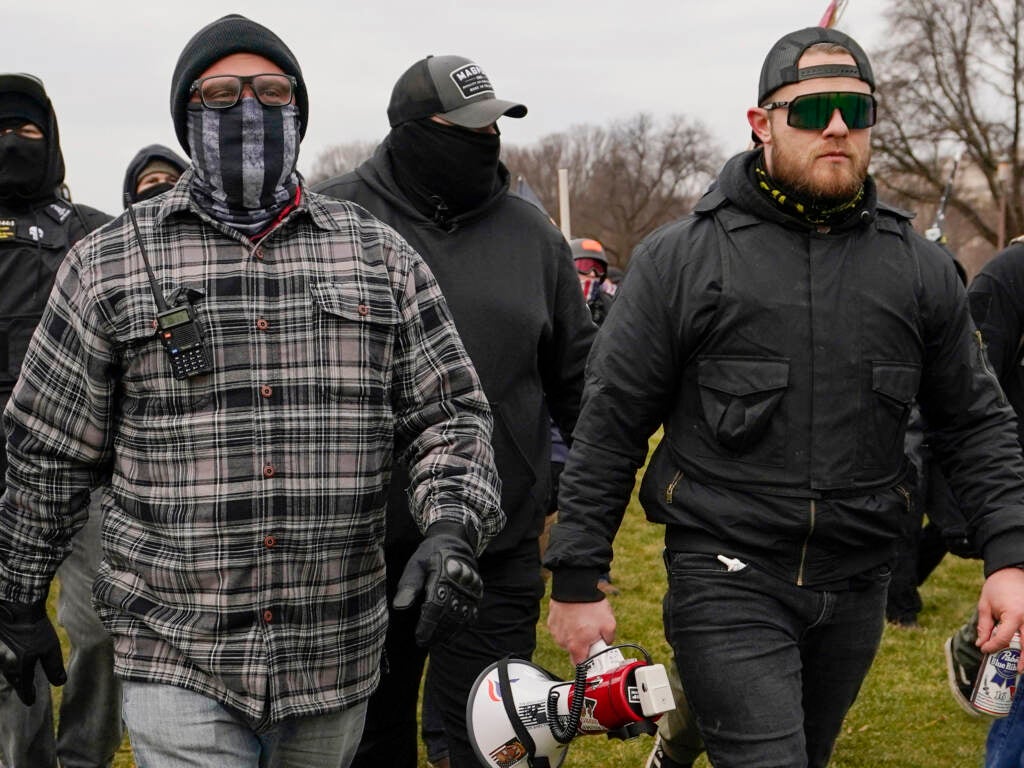
Prosecutors sought ‘terrorism enhancement’ to sentencing
Prosecutors chose to apply a “terrorism enhancement,” which leads to longer prison terms, given their crimes, according to court documents. Lawyers for the government said that such an enhancement is justified as it “captures the nature and seriousness of the defendants’ criminal agreement and the danger posed by their conduct on January 6.”
“The defendants understood the stakes, and they embraced their role in bringing about a ‘revolution.’ They unleashed a force on the Capitol that was calculated to exert their political will on elected officials by force and to undo the results of a democratic election,” prosecutors said in their filing submitted earlier this month. “The foot soldiers of the right aimed to keep their leader in power. They failed. They are not heroes; they are criminals.”
An attorney for Tarrio said such an enhancement is “a tool to punish Tarrio” because he went to trial rather than plead guilty. Further, his attorney argued “Tarrio was not even present at the scene in Washington D.C.; he did not direct his fellow members of Proud Boys or anyone else to assault people on the day in question or to destroy any government property.”
Tarrio wasn’t at the actual riot because he had been arrested days earlier for setting fire to a Black Lives Matter banner, stolen from Asbury United Methodist Church in Washington, D.C. and was ordered out of the city.
Prosecutors maintain Tarrio directed his Proud Boys to attack the Capitol in his absence.
Tarrio’s attorney said he wasn’t in contact with any members of the organization during the riot and pointed to Nordean and Biggs as being the orchestrators of the riot. Further, they said, “Participating in a plan for the Proud Boys to protest on January 6 is not the same as directing others on the ground to storm the Capitol by any means necessary.”
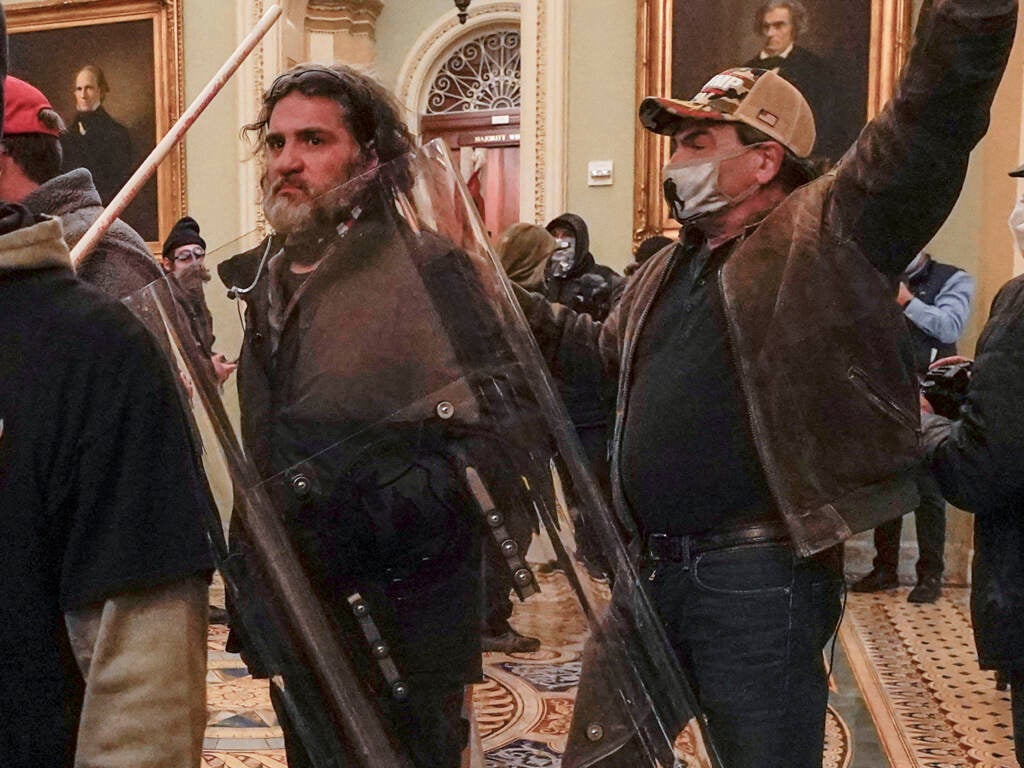
2 victims of Jan. 6 address the court
Ahead of the three days of sentencing hearings, the four defendants sat in court Tuesday to hear victim impact statements and to hash out final details of the case in front of the federal judge.
Among those in person to share their impact statements were two law enforcement officers who fought back against a number of Jan. 6 rioters in an effort to defend the Capitol and members of Congress.
Tarrio, Nordean, Biggs, Rehl and Pezzola sat at the same table, dressed in orange prison garb, and remained stone faced as Officer Shea Cooney and United States Capitol Police Inspector Thomas Boyd addressed the court with emotional statements.
On Jan. 6, 2021, Cooney came face to face with Nordean and Biggs who ignored her commands to stop as they and other protestors poured into the West Plaza of the Capitol, according to court documents.
“That day was the first day I wasn’t sure I would be going home that night,” Cooney said, breaking down as she spoke.
She said she and her colleagues were beaten by people who claimed they supported law enforcement. She and her fellow officers were later devastated to learn that a friend she worked with died and that other officers later died by suicide.
“That day changed the way I saw the department,” she said.
Boyd said that on the day of the riot he “witnessed the most violent fighting in my 33-year career.”
He became emotional when he spoke of the courage of his officers who, after fighting back rioters for hours on Jan.6, returned the next day ready to work.
9(MDAzMzI1ODY3MDEyMzkzOTE3NjIxNDg3MQ001))


